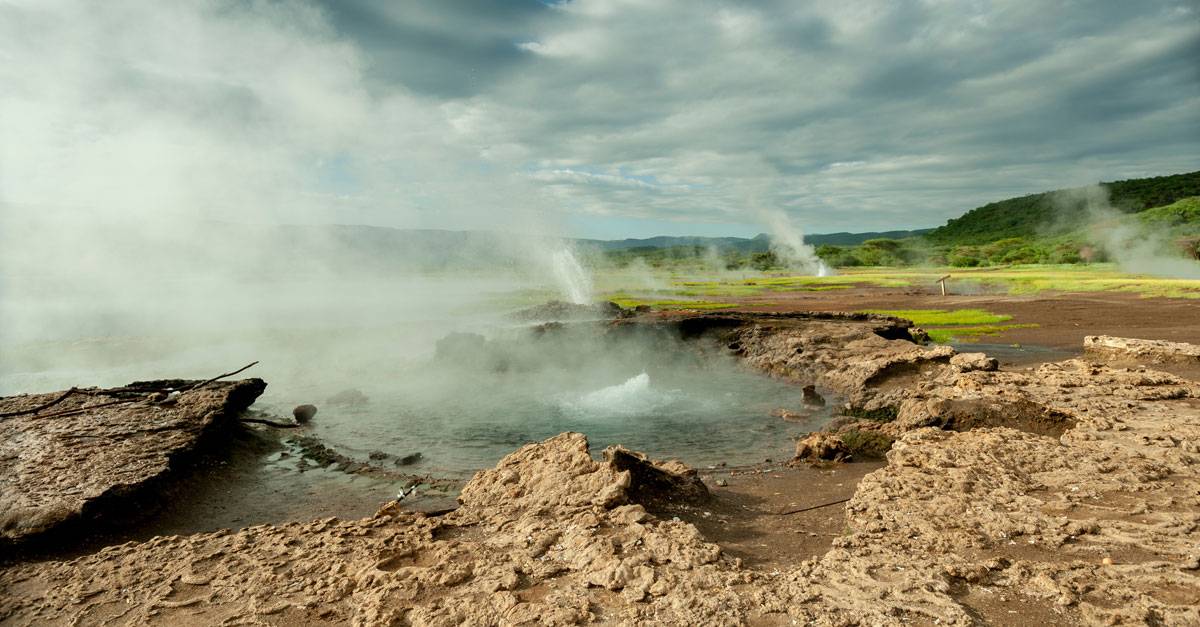Harnessing the Green Energy
Geothermal energy, a renewable energy source derived from the heat of the earth’s crust, has become a key pillar of Kenya’s energy strategy. The country’s geothermal journey dates back decades, with early efforts focused on exploring and surveying potential geothermal sites in the Great Rift Valley. Today, Kenya has the highest share of geothermal power generation in the world, with 48 percent of its electricity coming from geothermal sources.
The Rise of Kenya’s geothermal Sector
Kenya’s geothermal sector has experienced remarkable growth over the years, thanks to strategic investments and a supportive regulatory framework. The Olkaria area, located in the Great Rift Valley, was identified as a potential hotspot for geothermal power generation in the 1950s. However, it wasn’t until the 1980s that the first geothermal power plant, Olkaria I, came online with a capacity of 15 megawatts.
Since then, Kenya has made significant progress in developing its geothermal capacity. The Geothermal Resources Act of 1982 established a legal framework for geothermal investment and licensing, paving the way for increased geothermal development. In the last two decades alone, Kenya has added 531 megawatts of geothermal capacity, bringing the total to 882 megawatts. With ongoing projects and ambitious targets, Kenya aims to have 1,600 megawatts of geothermal capacity by 2030.
A Catalyst for economic Growth
Kenya’s geothermal revolution is not just about generating clean energy; it also has immense potential to drive economic growth and industrialization. Geothermal energy is particularly suited to industrial processes, providing a reliable and cost-effective source of power. Unlike intermittent renewable energy sources such as wind and solar, geothermal provides a steady and continuous stream of energy, making it ideal for energy-intensive industries.
Elevate Your Wealth Game: Empowering UHNWIs for Simplified Asset Management. Altoo Platform Preview
The versatility of geothermal energy is evident in its immediate applications. In addition to generating electricity, geothermal steam can be used to heat buildings, process textiles, preserve food, and even power vehicles. In Kenya, the Oserian Development Company uses geothermal steam to heat greenhouses at its flower farm, one of the largest in the world. This demonstrates the potential for geothermal energy to drive innovation, create jobs and spur economic development in Kenya.
Environmental Benefits and climate Change Mitigation
One of the most compelling reasons for Kenya’s focus on geothermal energy is its environmental benefits. Geothermal energy is a clean, low-carbon energy source that helps reduce greenhouse gas emissions and combat climate change. By relying on geothermal energy, Kenya can avoid the use of heavy fuel oil and diesel to generate electricity, resulting in a significant reduction in carbon dioxide emissions.
Expanding Kenya’s geothermal sector is a critical step in achieving the country’s climate change goals. By 2030, the increased geothermal capacity will displace the equivalent of 4.2 million metric tons of carbon dioxide annually. This significant reduction in greenhouse gas emissions demonstrates Kenya’s commitment to sustainable development and its contribution to the global fight against climate change.



